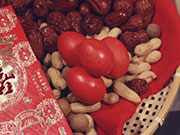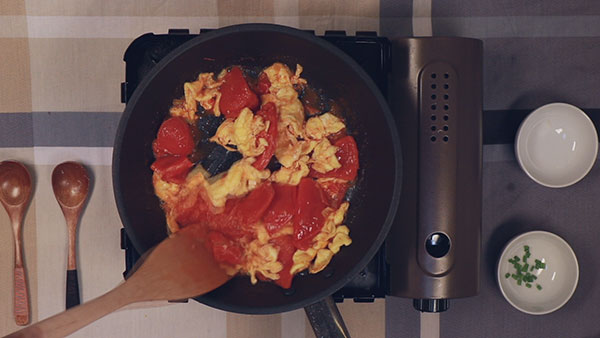China and its many egg creations

- By Xu Minjun
 0 Comment(s)
0 Comment(s) Print
Print E-mail China.org.cn, September 20, 2016
E-mail China.org.cn, September 20, 2016
In China, a nation obsessed with food, people may have no time struggling with the "chicken or the egg" causality dilemma -- they are too busy cooking a variety of amazing egg dishes to satisfy your picky taste buds. Chinese love eggs, which are economical, quick, and easy to prepare. It's not hard to find dozens of fresh eggs in the fridge of a Chinese kitchen.
Everybody loves scrambled eggs with tomatoes
 |
|
Scrambled eggs with tomatoes |
Don't underestimate scrambled eggs with tomatoes, a simple classic that's usually the first thing Chinese people learn to cook. It's not as simple as just mixing the two main ingredients, though. You have to first use enough oil to avoid the eggs sticking to the wok. Then add a spoonful of white sugar to neutralize the sourness of the tomatoes. Finally, add salt.
A hundred ways to eat eggs in China
While the British's love for tea is no secret, China has a unique use for tea in preparing its own respective culinary staple --the tea eggs, which are stewed in a broth of five-spice powder, soy sauce, and black tea leaves. After being infused with the tea mix, the egg has a fresh aroma and marbled appearance. As one of the country's most common street snacks, tea eggs have also spread to overseas Chinese communities around the world.
Many Chinese children grow up on Chinese steamed eggs, which look like a cross between an omelette and custard. The eggs are beaten, water is added, and the mix is steamed until just firm to create a smooth, silky texture. A tablespoon of soy sauce can be added for an extra savory kick.
Century eggs, or pidan in Chinese, were discovered accidentally by a famer in the Ming Dynasty, who found naturally duck eggs in a shallow pool of slaked lime. After tasting the eggs, he started to produce more manually. No, they aren't actually hundreds of years old. They do have a long and kind of complicated preparation, however. First, a mixture of clay, ash, salt, quicklime, and rice hulls are filled in a vat. A day later duck, chicken, or quail eggs are placed into the mixture, where they will remain preserved for a couple of weeks to several months. The egg yolks turn green or grey while the whites become a dark jelly. They are often served at banquets with soy sauce and vinegar.
Eggs & Fortune
Painted eggs aren't just for Easter. Red-dyed eggs are considered auspicious gifts on special occasions in China, symbolizing fertility and longevity. At weddings, the bride's family usually sends red-dyed eggs to the groom's home to wish for fertility. When a baby is born, they are handed out to friends and relatives to symbolize longevity and new life.





